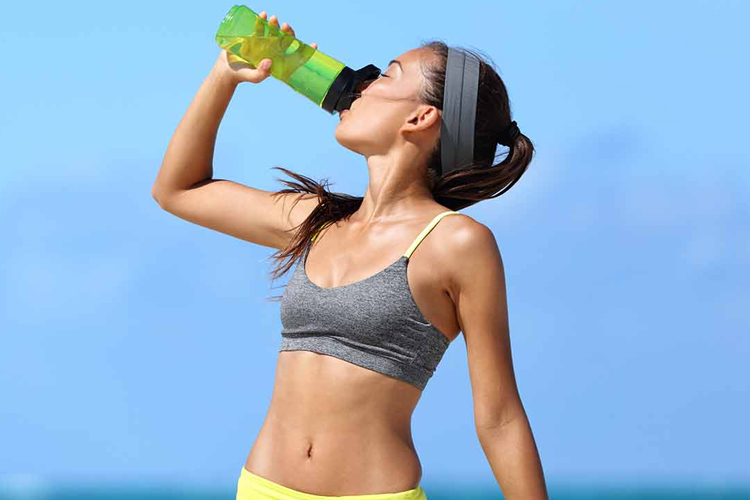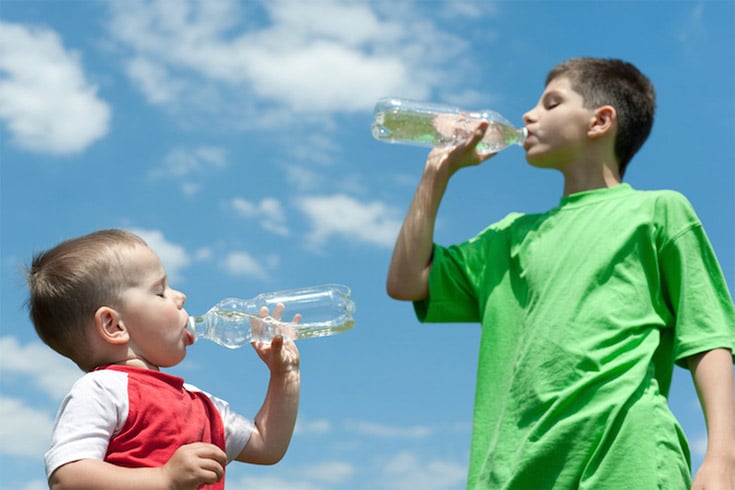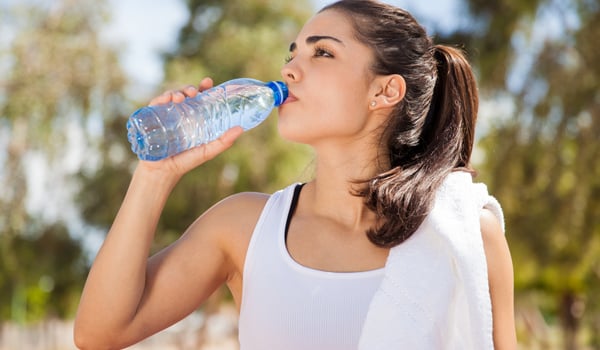
You may feel dehydrated when there is a fluid imbalance in your body. Dehydration may occur if your water intake is lesser than your water loss. If you don’t replenish the lost fluids actively, you will feel exhausted. Are you sure your family is not dehydrated? Read on to know more about this common health problem before it becomes severe!
Now dehydration can happen to anyone, from any walk of life, with any food habit and at any age. However, the condition becomes critical and at times even life-threatening in case of children and elderly people as their bodily strength to deal with such abnormalities is lesser.
Any bout of diarrhea especially when accompanied by vomiting can lead to dehydration in children. In case of elders, dehydration can occur due to less water volume in their bodies. Most of the time older people are under some medication or another, powerful medicine call for a greater amount of hydration, the absence of which can make dehydration a potential threat. Therefore any form of pulmonary or urinary infections too may lead to dehydration if one is above the age of fifty.
Now don’t think you are safe because you are young. Dehydration also can strike you when you are in your twenties and thirties if your intake of water is not enough, especially when the weather is hot or in case you are working out vigorously.
Moderate dehydration can be easily reversed by increasing the intake of fluids, but immediate medical attention is required to treat acute dehydration.
Signs of dehydration
Feeling thirsty isn’t alone an indication that your body needs to be hydrated. With age, many people don’t even feel thirsty until they suffer from acute dehydration. Therefore, we suggest you increase your water intake when the weather is hot or when you’re down with a disease.
Dehydration symptoms differ in every age group.
What are the common signs of dehydration in children?
- Dry mouth and tongue
- Absence of tears when crying
- Decrease in urine output
- Sunken eyes and cheeks
- Sunken soft spots on top of the skull
- Lethargy accompanied by irritability

What are the common signs of dehydration in adults?
- Excessive thirst
- Decrease in the frequency of urination
- Dark or yellowish urine
- Extreme fatigue
- Giddiness
- Disorientation
When to seek medical help?
Dial the medical helpline if you or anyone in your family suffers from diarrhea for over 24 hours. Especially if you pass black stool or blood. If you feel dazed, lethargic, and irritable it is time to see a doctor as you may be suffering from dehydration. Also, an inability to digest fluids could be a warning sign of severe dehydration.
Causes of Dehydration
At times dehydration can occur for reasons as simple as not drinking enough water. This could happen when you are sick or busy traveling.
Here are some other causes of dehydration:
- Diarrhea and/or vomiting: An acute bout of diarrhea can lead to dehydration. Patients suffering from diarrhea often suffer from vomiting too, both of which can deplete the fluids and essential salts from the body. Drinking electrolytes and fluids can correct this water imbalance and mineral loss.
- Fever: Normally an increase in body temperature increases the risk of dehydration. Any spell of diarrhea and nausea during fever or any other infection can aggravate your dehydration.
- Increased perspiration: We all know this simple equation, we lose water as we sweat. If we indulge in a vigorous workout and don’t substitute the lost fluids as we go along, chances of becoming dehydrated get more likely. Summer and monsoon seasons are times when you end up perspiring more and draining essential water, salts, and other minerals from your body.
- Excessive urine output: You may be making frequent trips to the toilet due to uncontrolled or undiagnosed diabetes. Some medications, like diuretics and a few blood pressure tablets, also can cause dehydration as you may feel the urge to urinate more if you are taking them regularly.

Risk factors of Dehydration
Dehydration can affect anyone but some of us are more prone to it:
Young children: Dehydration is common among children as they are prone to suffer from diarrhea, fever, and vomiting. Children often fail to realize or tell that they are thirsty because of which their water intake is lesser than required.
Older adults: As we age, the body’s fluid reserve grows smaller, and our ability to conserve water within our body reduces. Even our thirst sense deteriorates. Diabetes, dementia, and regular medication may trigger dehydration.
[sc:mediad]
Patients suffering from a chronic medical condition: Complex diseases related to kidney functioning or lifestyle disorders like diabetes can lead to dehydration. A simple cough and cold can also adversely affect your water intake and cause dehydration.
Tips to Prevent Dehydration:
To keep the threat of dehydration at bay, make sure you drink plenty of fluids. Increase the intake of foods with high water content such as fresh fruits and green vegetables. Don’t wait to feel thirsty to drink water, consuming a minimum of 8 glasses of water every day is a must. Here are some simple tips you can follow to prevent dehydration:
- If you see your child taking an extra round of the washroom, make sure you hand him a glass of water on his return. A few more trips to the loo, and add a teaspoon of sugar and a pinch of salt to his glass of water.
- Always carry a bottle of water when you head out for jogging. Don’t miss out on the water bottle even after a yoga session. Keep your sipper handy when you go grocery shopping in summer.
- We tend to miss out on water during winters and think it’s perfectly okay. We are wrong here. Winter chills dry out our skin and body. This is when our tissues call for extra fluid.
- Every time we pop a pill for diabetes or blood pressure, we must remember to empty a glass of water to prevent dehydration due to heavy medication.
Dehydration often goes unnoticed until it leads to a major health issue. Remember, prevention is better than cure. Make a conscious effort to drink loads of water. A simple healthy habit can keep major diseases away. Did you suffer from dehydration recently? Tell us how you recovered from it in the comments section below.
Images Source: pinterest
